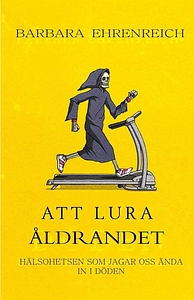You need to sign in or sign up before continuing.
Take a photo of a barcode or cover
I might return to sometime when I've read all the other books, but I'm giving myself permission to put down books I'm not enjoying. She probably has great information, and I bet another author would have written a fucking amazing book with her notes & research, but her ax to grind is inhibiting my enjoyment.
If you approach death with the thought that death is a bad thing because it deprives the universe of you, then this book is probably not for you.
An interesting basic premise but so incredibly annoying I almost couldn’t finish it. What was the point of this?
Chaotic and a little undefined, but the overall topic is extremely fascinating for me - during the pandemic especially theres a lot of "trust science" talk in response to anti-vax, and as someone who STRONGLY believes in science, I'm still extreme aware that "science" is not a neutral ambient entity that I have access to, but is housed in institutions/people with political/financial motivations/considerations, and am especially skeptical of an overall medical industrial complex/for profit insurance/the relative value of lives according to these institutions. This book was very much in a camp I've been in, but really interesting (and upsetting) details/insights!
informative
inspiring
reflective
slow-paced
While I did not find most of this book interesting or enlightening, the beginning really stirred something in me. I believe it was anger at being trained like a good girl to go along with yearly literal medical intrusion in my body. The 2 stars are for the 2 medical appointments I cancelled for the week, because I too am fucking tired of preventative medicine.
slow-paced
With dry humor and plenty of scientific endnotes, Ehrenreich examines the poor science and status-seeking behind many fashionable wellness practices, including routine medical examinations and screenings. Against the idea that we can perfect our minds and bodies, she sets the self-sabotage built into our bodies in the form of our immune systems, illustrated by autoimmune diseases, our reproductive systems, and how our macrophages promote the growth and metastasis of cancer. She recommends treatments for self-love and the fear of death instead, asking whether, given the facts, it makes more sense to regard death as a "tragic interruption" of one's life, or to see life "as an interruption of an eternity of personal nonexistence, and seize it as a brief opportunity to observe and interact with the living, ever-surprising world around us." (full review at Shelf Awareness)
There’s an argument and there’s a passion, but it didn’t feel like a story with direction.




